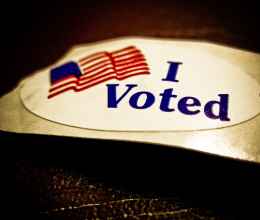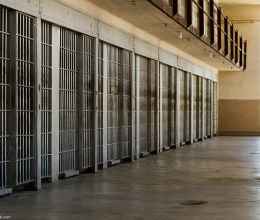
From the exploitation of low-wage workers, to the denial of equitable education, to the failure to protect the rights of incarcerated people, COVID-19 has made clear the failings of our society to ensure the basic rights of all.
Across the nation, the COVID-19 pandemic has already resulted in widespread and devastating economic consequences. As of last Thursday, over 30 million people have filed for unemployment insurance. And, because health insurance is often tied to employment in our country, the number of uninsured or underinsured people and families in America will increase in the midst of a global pandemic. This is unprecedented and doesn’t include undocumented people who also face additional harms and exploitation.
In the face of staggering unemployment numbers and climbing medical costs, millions of people living in the United States -- and 1,473,765 renters in South Carolina -- face the imminent threat of losing their homes. These consequences risk further spread of COVID-19 throughout South Carolina and undermine efforts to protect public health and well-being. Moreover, the nearly guaranteed wave of evictions would inflict far-reaching and significant economic and social harm on thousands of South Carolina residents—particularly on women, people of color, low-income residents, and other vulnerable communities.
Last week we sent a letter to Chief Justice Beatty and Governor McMaster urging them to take the steps necessary to prevent South Carolinians from losing their home during a global pandemic. Chief Justice Beatty’s order to halt evictions and foreclosures until May 15 is a welcome step, but our leaders must go much further. It is critical to immediately extend the moratorium period to at least July 25 to align with the federal CARES Act. Furthermore, our state leaders must take steps to provide additional protections to renters and prevent a surge of evictions after the moratorium expires, including halting utility disconnections, establishing rent payment grace periods, prohibiting evictions due to nonpayment of rent during the pandemic, and prohibiting late fees and rent increases.
Evictions and utility shut-offs will disproportionately harm communities of color -- and particularly women of color. The ACLU’s Data Analytics team analyzed national eviction data from 2012 to 2016, provided by the Eviction Lab at Princeton University, and found that on average, Black renters had evictions filed against them by landlords at nearly twice the rate of white renters. Women of color, and particularly Black women, bear the burden of eviction. The harmful impact of eviction is further compounded by other racial, gender, and socioeconomic barriers—such as wealth gaps, pay disparities, and inequities in our healthcare system.
Critically, the aftermath of an eviction persists for decades, as tenants with prior eviction records face major obstacles to accessing future housing opportunities. Landlords routinely employ screening policies that deny housing to any renter previously named in an eviction case, regardless of whether the case was dismissed, occurred many years ago, or was filed on unlawful grounds. As a result, eviction often exacerbates and reproduces conditions of economic insecurity for low-income women and communities of color.
Utility shut-offs also disproportionately harm communities of color. A 2017 report by the NAACP found that Black households experience utility disconnections at a higher rate than financially similar white households. For households at or below 150% of the federal poverty level, only 5.5% of white-headed households experienced shutoffs as compared to 11.3% of Black-headed households. Similarly, another study revealed that residents in neighborhoods predominantly consisting of people of color faced 27% higher energy cost burdens than those in predominantly white neighborhoods. Research further shows that Black communities disproportionately experience higher water costs, water service terminations, and water liens, resulting in negative health and economic outcomes.
South Carolina must expand a comprehensive moratorium on evictions, halt utility shut-offs and prevent mass evictions after the moratorium ends. In light of the widespread and devastating impact of eviction during the pandemic, we call on South Carolina to immediately issue a comprehensive moratorium on evictions and utility shut-offs throughout the entire state that prohibits every stage of the eviction process without exceptions for types of tenants or lease violations. South Carolina must also plan ahead for when the moratorium ends to prevent mass evictions and other enduring housing consequences for tenants hurt by the pandemic.
Specifically, we call on South Carolina to:
- Halt every stage of the eviction process. An effective eviction moratorium would prohibit landlords and housing providers from proceeding with any stage of the South Carolina eviction process, including, but not limited to: (1) formal or informal issuance of eviction notices; (2) service of legal process in eviction actions; (3) filing of new eviction cases; (4) eviction hearings; and (5) enforcing orders of eviction, including orders that were issued prior to the date that the moratorium went into effect. Moreover, the moratorium should extend or toll all court deadlines for pending eviction proceedings for at least 30 days after the moratorium is lifted. Absent a clear and comprehensive moratorium, tenants still face a heightened risk of losing their homes or sustaining an eviction filing record that may unjustly act as a barrier to housing in the future.
- Continue to prevent evictions during and shortly after the pandemic, with extensions. Given the ongoing and unpredictable nature of the COVID-19 pandemic, the South Carolina moratorium must, at a minimum, continue until after the following conditions are met: (1) the period for mandated or recommended social distancing has ended; (2) South Carolina has determined the moratorium is no longer needed to control or limit the spread of COVID-19; and (3) South Carolina has determined there are no further public health, economic, or other circumstances supporting the continued need for the moratorium. Moreover, an effective eviction moratorium should allow for extensions as necessary to allow tenants reasonable time to apply for and receive financial resources and assistance following the conclusion of the pandemic. The moratorium should also guarantee that landlords and housing providers give at least 30 days’ notice to evict a tenant upon expiration of the moratorium period.
- Apply this moratorium to all types of tenants and lease violations. In light of the ongoing public health crisis and its economic consequences, all residents -- regardless of their circumstances or background -- must have access to safe and stable housing throughout the course of the COVID-19 pandemic. Given the extraordinary circumstances that South Carolina residents are facing, an effective eviction moratorium should not be limited to evictions for non-payment of rent. Rather, the moratorium must prohibit all evictions, regardless of the type of tenant or lease violation. Any exception to an eviction moratorium should be narrowly tailored to circumstances in which an individual’s tenancy poses a serious and imminent health or safety threat that cannot be reduced or eliminated except by eviction.
- Prohibit the collection of late fees and protect tenants who assert rights provided by the moratorium. The moratorium should prohibit landlords from imposing fees or fines associated with the late payment of rent due during the period of the moratorium, which can often be considerable. Additionally, the moratorium should prohibit landlords from retaliating against tenants who seek protections under the moratorium.
- Issue a moratorium against utility shut-offs without exception. In addition to issuing a comprehensive eviction moratorium, South Carolina should protect its residents’ access to critical utility services by prohibiting utility shut-offs or disconnections for the duration of the pandemic. Moreover, South Carolina should commit to restoring previously disconnected utility services for residents without water or other services.
- Prevent mass evictions after the moratorium ends. The issuance of a moratorium will play an important role in mitigating negative public health and economic impacts of the pandemic. In addition to containing further spread of COVID-19 by ensuring residents can comply with stay-at-home orders, a moratorium will prevent the harmful aftermath of eviction, such as medical and mental health issues, financial hardship, and homelessness. However, permitting mass evictions to take place the moment the moratorium lifts will similarly cause huge upheavals in local communities, harm public health, and threaten families. For that reason, South Carolina should commit to adopting policies that would prevent mass evictions once the moratorium ends. Key policies should include requiring landlords to negotiate payment plans prior to the filing of eviction cases, creating renters’ relief funds to cover back rent, providing renters with a grace period of at least 30 days to pay rent, establishing right to free legal counsel to tenants facing eviction, and exploring other creative strategies for addressing this unprecedented threat to community stability. Such policies should provide meaningful mechanisms to ensure compliance by landlords and housing providers. For example, South Carolina officials should issue guidance for housing courts to require landlords and housing providers to show that they have engaged in good faith negotiation of payment plans prior to filing for eviction.
- Protect tenants from blacklisting because they face eviction after the moratorium ends. The mere filing of an eviction—even where an eviction judgment is not entered—deprives tenants of housing opportunities, because landlords often will not rent to anyone who has been subject to an eviction case. This type of blacklisting is devastating, locking out families from better housing, schools, and employment for decades. South Carolina must ensure that any evictions filed during this period do not impede tenants’ opportunities for the rest of their lives by preventing consideration of evictions filed during this crisis period. Moreover, South Carolina should prohibit landlords and housing providers from reporting missing or late rental payments to credit agencies or debt collection agencies to avoid future economic hardship following the pandemic.
Our elected leaders must act quickly to protect South Carolina residents against eviction and utility shut-offs. These actions will provide the certainty and stability that residents need to ensure that no one is at immediate risk of losing their homes while we work to find longer-term solutions to handling unpaid rent, providing economic and financial support, and ensuring access to stable housing in the aftermath of the COVID-19 pandemic.
While the immediate steps that South Carolina must take are clear, we can’t forget how we got here. We must recognize our racist and exploitative history and replace its modern version. We can end racist and exploitative policies including regressive taxation, lending and pay discrimination, unequal education, and mass incarceration, to name a few. Together we can build a South Carolina where the principles of justice, fairness, anti-racism, and equity are the foundation of our public policy.

